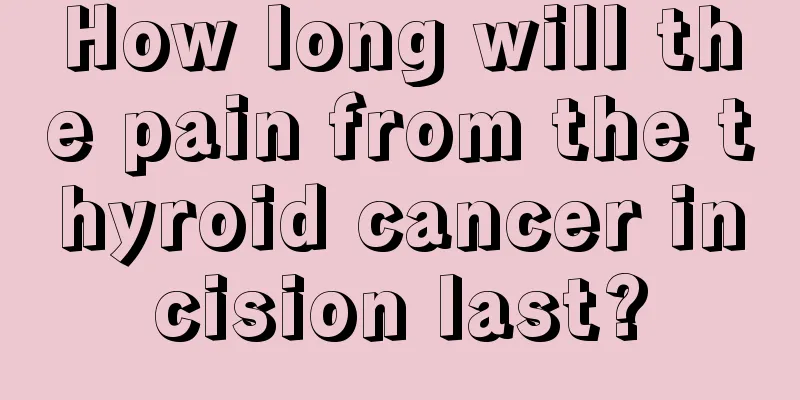Why do I always feel anxious and palpitating?

|
Many people will experience palpitations, especially for those who are weak and have been ill for a long time, overeat, overwork, hurt by the seven emotions, or are affected by external evils. Palpitations are commonplace. Therefore, after experiencing symptoms of palpitations, you must go to the hospital in time to find out the cause and then receive treatment. Of course, in order to better relieve the symptoms of palpitations, daily conditioning is also important. Below we will introduce in detail the causes, symptoms and treatment methods of heart palpitations! What are the causes of palpitations? 1. Physical weakness and chronic illness Insufficient endowment, weak physique, or long-term illness and lack of nourishment, excessive work and desire, deficiency of Qi, blood, Yin and Yang, resulting in malnutrition of the heart, leading to palpitations. 2. Diet and fatigue If you are fond of eating rich and greasy food, frying, roasting or stewing, the heat will turn into fire and produce phlegm, or you will damage the spleen and produce phlegm. The phlegm and fire will disturb the heart and cause palpitations. Overwork and fatigue can damage the spleen, or sitting or lying down for a long time can damage the Qi, causing insufficient sources of metabolism, which leads to a deficiency of blood in the heart, a loss of nourishment to the heart, and a loss of spirit, which can cause palpitations. 3. Seven emotions hurt People who are usually guilty and timid may suddenly be frightened or feel uncomfortable, or feel overly sad, or worried, and other seven emotions may disturb their mind, causing it to waver and make them lose control and suffer from palpitations. 4. Feeling of external pathogens Wind, cold, dampness and heat can also invade the heart through the blood vessels, depleting the heart's qi, blood, yin and yang, which can also cause palpitations. For example, febrile diseases and epidemic toxins can burn the Ying Yin, causing the heart to lose nourishment and resulting in palpitations. Or evil toxins may disturb the mind, causing unrest and causing palpitations. Diseases such as spring fever, wind fever, summer fever, diphtheria, and syphilis are often accompanied by palpitations. 2. Symptoms of palpitations The basic symptom characteristics of palpitations are paroxysmal heart palpitations, violent and uncontrolled heartbeats, which may be transient, paroxysmal, or last for a long time, or occur several times a day, or once every few days. It is often accompanied by chest tightness, shortness of breath, fatigue, dizziness, shortness of breath, and even inability to lie flat, leading to fainting. The pulse may be rapid or slow, sometimes sparse and sometimes rapid, and knotted pulse, alternating pulse, hurried pulse and wiry pulse are common. If palpitations are not treated or are treated incorrectly, they may lead to complications. If palpitations are accompanied by edema, oliguria, cold body and limbs, restlessness, shortness of breath when moving, and a rapid and weak pulse, these are the characteristics of severe palpitations due to deficiency of heart and kidney yang and water retention in the heart. If you have sudden onset of palpitations, shortness of breath, inability to lie still, coughing up foamy sputum or pink sputum, or have paroxysmal coughs at night, oliguria, limb swelling, and a weak and rapid pulse, these are the characteristics of a critical symptom of palpitations caused by water and fluid attacking the heart and lungs. If palpitations are accompanied by sudden pale complexion, profuse sweating, cold limbs, shortness of breath and apathy, this is a dangerous symptom of escape of heart yang. If the pulse of palpitations is scattered, extremely fast or extremely slow, the face is pale, the lips are cyanotic, there is a sudden loss of consciousness, limb convulsions, and then it returns to normal in a short time without sequelae, or the patient faints, these are the characteristics of syncope caused by palpitations. How to treat palpitations 1. You can practice the "shaking your head and tail to relieve heart heat" in Ba Duan Jin, the "monkey play" in Wu Qin Xi, and the "summer solar term movements" in the 24 solar terms health guidance. 2. Avoid overwork and try to lead a regular life. 3. Patients with palpitations should remain optimistic, emotionally stable, actively cooperate with treatment, and maintain confidence, which will help with recovery. Avoid panic, excitement, worry, anger, etc. 4. Maintain a regular daily routine. Eat in moderation, eat nutritious and easily digestible foods, a low-fat, low-salt diet, and avoid smoking, drinking, and strong tea. 5. Patients with mild symptoms can engage in appropriate physical activities without feeling tired or aggravating symptoms, and avoid strenuous activities. Patients with severe palpitations should stay in bed and rest. They should also detect signs of changes in symptoms and worsening illness as early as possible and be prepared for emergency treatment. 6. The small-particle negative ion breathing environment reduces the burden on the heart. |
<<: I always get blisters on the soles of my feet
>>: Why is my tongue always numb?
Recommend
What to do with subcutaneous bleeding? This will relieve it
The main cause of subcutaneous bleeding is damage...
What is the fastest way to get rid of acne
Many people have acne on their faces. Some people...
Tips to get rid of sand in the corners of your eyes
In daily life, small things like sand, dust and i...
What are thyroid follicles? What are the symptoms of thyroid follicles?
The shape of the thyroid follicle can change with...
What are the wonderful uses of fruit peels
When we usually eat fruits, we usually throw away...
Can drinking soy milk every day remove spots?
It is human nature to love beauty, so it is very ...
How to maintain fixed dentures
Today's medical industry is constantly improv...
The small pit under the front bone of the calf
The phenomenon of a small depression on the front...
What can't you eat after ovarian cancer surgery
Ovarian cancer can occur at any age, but it is mo...
People need to pay attention to the prevention methods of nasopharyngeal cancer
In recent years, with the increasing incidence of...
How to treat black spots on chicken comb
Chicken is a kind of poultry and also a common ed...
Effect of CLS biological immunotherapy on uterine tumors
CLS biological immunotherapy is a method of using...
What is a hepatitis B virus carrier?
Everyone has heard of hepatitis B and should be f...
Is hemolytic Staphylococcus contagious?
Staphylococcus aureus is a common coccus among mo...
Life expectancy after surgery for advanced liver cancer
How long can a liver cancer patient generally liv...









